Practice Primacy: Revisiting the Knowledge–Action Gap in Pro-Environmental Behavior with eXplainable AI
Abstract
1. Introduction
2. Background and Related Work
2.1. The Knowledge–Action Gap: An Enduring Puzzle
2.2. Theoretical Frameworks and Key Predictors of Pro-Environmental Behavior
2.2.1. Contributions from Classic Theories: Identifying Core Dimensions of Influence
2.2.2. An Integrated Framework and Predictors for This Study
3. Methods
3.1. Study Design, Participants, and Data Collection
3.2. Variable Measurement and Feature Engineering
3.3. Analytical Strategy
3.3.1. Model Comparison and Selection
3.3.2. Interpretability Analysis
3.3.3. Group Heterogeneity Analysis
4. Results
4.1. Descriptive Statistics
4.2. Model Performance Comparison
4.3. Feature Variable Importance Analysis
4.4. SHAP Value Analysis
4.5. Heterogeneity Analysis
5. Discussion
5.1. Core Findings: A Shift from the “Knowledge–Action Gap” to a “Practice Primacy” Driver Model
5.2. Practice Primacy: From an Empirical Observation to Theoretical Grounding
5.3. Non-Linearity and Heterogeneity of the Driving Mechanisms
5.4. Theoretical and Practical Implications
5.5. Limitations and Future Research
6. Conclusions
Author Contributions
Funding
Institutional Review Board Statement
Informed Consent Statement
Data Availability Statement
Conflicts of Interest
References
- Pfenning-Butterworth, A.; Buckley, L.B.; Drake, J.M.; Farner, J.E.; Farrell, M.J.; Gehman, A.-L.M.; Mordecai, E.A.; Stephens, P.R.; Gittleman, J.L.; Davies, T.J. Interconnecting global threats: Climate change, biodiversity loss, and infectious diseases. Lancet Planet. Health 2024, 8, e270–e283. [Google Scholar] [CrossRef]
- Poertner, H.-O.; Scholes, R.J.; Arneth, A.; Barnes, D.K.A.; Burrows, M.T.; Diamond, S.E.; Duarte, C.M.; Kiessling, W.; Leadley, P.; Managi, S.; et al. Overcoming the coupled climate and biodiversity crises and their societal impacts. Science 2023, 380, eabl4881. [Google Scholar] [CrossRef]
- Farooqi, T.J.A.; Irfan, M.; Portela, R.; Zhou, X.; Shulin, P.; Ali, A. Global progress in climate change and biodiversity conservation research. Glob. Ecol. Conserv. 2022, 38, e02272. [Google Scholar] [CrossRef]
- Yadav, R.; Pathak, G.S. Determinants of Consumers’ Green Purchase Behavior in a Developing Nation: Applying and Extending the Theory of Planned Behavior. Ecol. Econ. 2017, 134, 114–122. [Google Scholar] [CrossRef]
- Yang, B.; Wu, N.; Tong, Z.; Sun, Y. Narrative-Based Environmental Education Improves Environmental Awareness and Environmental Attitudes in Children Aged 6–8. Int. J. Environ. Res. Public Health 2022, 19, 6483. [Google Scholar] [CrossRef] [PubMed]
- Alves, S.A.A.; Bezerra, I.M.P.; Cavalcante, E.G.R.; Alburquerque, G.A.; Lopes, M.d.S.V. Saúde e meio ambiente no cenário escolar na perspectiva de adolecentes. Millenium—J. Educ. Technol. Health 2022, 2, 131–139. [Google Scholar] [CrossRef]
- Kurokawa, H.; Igei, K.; Kitsuki, A.; Kurita, K.; Managi, S.; Nakamuro, M.; Sakano, A. Improvement impact of nudges incorporated in environmental education on students’ environmental knowledge, attitudes, and behaviors. J. Environ. Manag. 2023, 325, 116612. [Google Scholar] [CrossRef]
- Wu, Y.; Wan, J.; Yu, W. Impact of environmental education on environmental quality under the background of low-carbon economy. Front. Public Health 2023, 11, 1128791. [Google Scholar] [CrossRef]
- Al Mamun, A.; Ma, Y.; Reza, M.N.H.; Ahmad, J.; Wan, H.W.M.H.; Lili, Z. Predicting attitude and intention to reduce food waste using the environmental values-beliefs-norms model and the theory of planned behavior. Food Qual. Prefer. 2024, 120, 105247. [Google Scholar] [CrossRef]
- Wang, H.; Zhang, L. The effect of environmental cognition on farmers’ use behavior of organic fertilizer. Environ. Dev. Sustain. 2025, 27, 9165–9185. [Google Scholar] [CrossRef]
- Han, G.-S. Relationships between Outdoor Recreation-Associated Flow, Pro-Environmental Attitude, and Pro-Environmental Behavioral Intention. Sustainability 2023, 15, 10581. [Google Scholar] [CrossRef]
- Shabnam, S.; Quaddus, M.; Roy, S.K.; Quazi, A. Consumer belief system and pro-environmental purchase intention: Does psychological distance intervene? J. Clean. Prod. 2021, 327, 129403. [Google Scholar] [CrossRef]
- Song, E.; Lee, M.-S.; Park, J.; Lee, H. Translating pro-environmental intention to behavior: The role of moral licensing effect. Sustain. Prod. Consum. 2024, 52, 527–540. [Google Scholar] [CrossRef]
- Vieira, J.; Castro, S.L.; Souza, A.S. Psychological barriers moderate the attitude-behavior gap for climate change. PLoS ONE 2023, 18, e0287404. [Google Scholar] [CrossRef]
- Toomey, A.H. What happens at the gap between knowledge and practice? Spaces of encounter and misencounter between environmental scientists and local people. Ecol. Soc. 2016, 21, 28. [Google Scholar] [CrossRef]
- Saarela, M.; Podgorelec, V. Recent Applications of Explainable AI (XAI): A Systematic Literature Review. Appl. Sci. 2024, 14, 8884. [Google Scholar] [CrossRef]
- Saeed, W.; Omlin, C. Explainable AI (XAI): A systematic meta-survey of current challenges and future opportunities. Knowl.-Based Syst. 2023, 263, 110273. [Google Scholar] [CrossRef]
- Lundberg, S.; Lee, S.-I. A Unified Approach to Interpreting Model Predictions. arXiv 2017, arXiv:1705.07874. [Google Scholar] [CrossRef]
- Molina, A.A.; Hellden, D.; Alfven, T.; Niemi, M.; Leander, K.; Nordenstedt, H.; Rehn, C.; Ndejjo, R.; Wanyenze, R.; Biermann, O. Integrating the United Nations sustainable development goals into higher education globally: A scoping review. Glob. Health Action 2023, 16, 2190649. [Google Scholar] [CrossRef]
- Abo-Khalil, A.G. Integrating sustainability into higher education challenges and opportunities for universities worldwide. Heliyon 2024, 10, e29946. [Google Scholar] [CrossRef]
- Lazarov, A.S.; Semenescu, A. Education for Sustainable Development (ESD) in Romanian Higher Education Institutions (HEIs) within the SDGs Framework. Int. J. Environ. Res. Public Health 2022, 19, 1998. [Google Scholar] [CrossRef] [PubMed]
- Guo, C.; Huang, Y.; Chen, X.D. Research on Integration of the Sustainable Development Goals and Teaching Practices in a Future Teacher Science Education Course. Sustainability 2024, 16, 4982. [Google Scholar] [CrossRef]
- McLean, M.; Phelps, C.; Smith, J.; Maheshwari, N.; Veer, V.; Bushell, D.; Matthews, R.; Craig, B.; Moro, C. An authentic learner-centered planetary health assignment: A five-year evaluation of student choices to address Sustainable Development Goal 13 (Climate Action). Front. Public Health 2022, 10, 1049932. [Google Scholar] [CrossRef] [PubMed]
- Eid, J.; Aanerud, M.; Enberg, K. Teaching sustainability at the high sea: The “One Ocean Expedition”. Sustain. Sci. 2024, 19, 347–359. [Google Scholar] [CrossRef]
- Al Husban, W. The Impact of Integrating Sustainable Development Goals on Students’ Awareness and Pro-Environmental Behavior: A Case Study of Jordan. Sustainability 2025, 17, 2588. [Google Scholar] [CrossRef]
- Munro, P.; Kapitan, S.; Wooliscroft, B. The sustainable attitude-behavior gap dynamic when shopping at the supermarket: A systematic literature review and framework for future research. J. Clean. Prod. 2023, 426, 138740. [Google Scholar] [CrossRef]
- Recio-Román, A.; Recio-Menéndez, M.; Román-González, M.V. Examining the Attitude-Behavior Gap in EU Ecolabel Adoption: A Mediation Path Analysis. Sustainability 2024, 16, 7214. [Google Scholar] [CrossRef]
- Räsänen, A.; Sarkki, S.; Haanpää, O.; Isolahti, M.; Kekkonen, H.; Kikuchi, K.; Koukkari, V.; Kärkkäinen, K.; Miettinen, J.; Mäntymaa, E.; et al. Bridging the knowledge-action gap: A framework for co-producing actionable knowledge. Environ. Sci. Policy 2024, 162, 103929. [Google Scholar] [CrossRef]
- Frederiks, E.R.; Stennerl, K.; Hobman, E.V. Household energy use: Applying behavioural economics to understand consumer decision-making and behaviour. Renew. Sustain. Energy Rev. 2015, 41, 1385–1394. [Google Scholar] [CrossRef]
- Knutti, R. Closing the Knowledge-Action Gap in Climate Change. One Earth 2019, 1, 21–23. [Google Scholar] [CrossRef]
- Beatriz Casiás, J.F. The Intention-Behavior Gap in Ethical Consumption: Mediators, Moderators and Consumer Profiles Based on Ethical Priorities. J. Macromark. 2021, 42, 100–113. [Google Scholar] [CrossRef]
- Meyer, K.B.; Simons, J. Good Attitudes Are Not Good Enough: An Ethnographical Approach to Investigate Attitude-Behavior Inconsistencies in Sustainable Choice. Foods 2021, 10, 1317. [Google Scholar] [CrossRef]
- Swapnil Tawde, R.K.; Shabbir Husain, R.V. “Mind will not mind”–Decoding consumers’ green intention-green purchase behavior gap via moderated mediation effects of implementation intentions and self-efficacy. J. Clean. Prod. 2022, 383, 135506. [Google Scholar] [CrossRef]
- Essiz, O.; Yurteri, S.; Mandrik, C.; Senyuz, A. Exploring the Value-Action Gap in Green Consumption: Roles of Risk Aversion, Subjective Knowledge, and Gender Differences. J. Consum. Res. 2022, 25, 67–92. [Google Scholar] [CrossRef]
- Mooney, M.E.; Middlecamp, C.; Martin, J.; Ackerman, S.A. The Demise of the Knowledge-Action Gap in Climate Change Education. Bull. Am. Meteorol. Soc. 2022, 103, E2265–E2272. [Google Scholar] [CrossRef]
- Wut, T.M.; Lee, D.; Lee, S.W. Does Attitude or Intention Affect Behavior in Sustainable Tourism? A Review and Research Agenda. Sustainability 2023, 15, 14076. [Google Scholar] [CrossRef]
- Colombo, S.L.; Chiarella, S.G.; Lefrançois, C.; Fradin, J.; Raffone, A.; Simione, L. Why Knowing about Climate Change Is Not Enough to Change: A Perspective Paper on the Factors Explaining the Environmental Knowledge-Action Gap. Sustainability 2023, 15, 14859. [Google Scholar] [CrossRef]
- Ranendra Sinha, S.A. Bridging the Knowledge-Intention Gap in Sustainable Consumption: An Extended Model. J. Model. Manag. 2024, 20, 648–667. [Google Scholar] [CrossRef]
- Chindasombatcharoen, N.; Tsolakis, N.; Kumar, M.; O’Sullivan, E. Navigating psychological barriers in agricultural innovation adoption: A multi-stakeholder perspective. J. Clean. Prod. 2024, 475, 143695. [Google Scholar] [CrossRef]
- Athias, J.D.; Anderies, J.M.; Crepin, A.S.; Dambrun, M.; Lindahl, T.; Norberg, J. Emergence of social-psychological barriers to social-ecological resilience: From causes to solutions. Ecol. Soc. 2024, 29, 6. [Google Scholar] [CrossRef]
- Tian, H.; Liu, X. Pro-Environmental Behavior Research: Theoretical Progress and Future Directions. Int. J. Environ. Res. Public Health 2022, 19, 6721. [Google Scholar] [CrossRef]
- Phu, N.V.; Stenger, A.; Tiet, T. Social incentive factors in interventions promoting sustainable behaviors: A meta-analysis. PLoS ONE 2021, 16, e0260932. [Google Scholar] [CrossRef]
- Saracli, S.; Boca, G.D. Factors influencing students’ environmental behavior for sustainable development. Environ. Eng. Manag. J. 2021, 20, 1–12. [Google Scholar] [CrossRef]
- Ling, M.L.; Xu, L.; Yang, H.M. Direct and spillover effects of social norm nudges for household recycling: A longitudinal field experiment. Sustain. Prod. Consum. 2023, 42, 423–433. [Google Scholar] [CrossRef]
- Irani, M.; Aghdam, S.R.; Ghasemzadeh, B. Investigating the link between place attachment, civic engagement, and pro-environmental behaviors. Environ. Dev. 2023, 47, 100897. [Google Scholar] [CrossRef]
- Cudjoe, D.; Wang, H. Public acceptance towards plastic waste-to-energy gasification projects: The role of social trust and health consciousness. J. Environ. Manag. 2024, 356, 120737. [Google Scholar] [CrossRef]
- Tan, S.Z.; Li, W.; Liu, X.G.; Liang, C.; Wang, Y.Q.; Sackey, N.A. Social trust, past behavior, and willingness to pay for environmental protection: Evidence from China. Environ. Dev. Sustain. 2025, 27, 20071–20099. [Google Scholar] [CrossRef]
- Yang, Y.; Yuan, Y.; Liu, P.; Wu, W.; Huo, C. Crucial to Me and my society: How collectivist culture influences individual pro-environmental behavior through environmental values. J. Clean. Prod. 2024, 454, 142211. [Google Scholar] [CrossRef]
- Gansser, O.A.; Reich, C.S. Influence of the New Ecological Paradigm (NEP) and environmental concerns on pro-environmental behavioral intention based on the Theory of Planned Behavior (TPB). J. Clean. Prod. 2023, 382, 134629. [Google Scholar] [CrossRef]
- Wang, H.; Mangmeechai, A. Understanding the Gap between Environmental Intention and Pro-Environmental Behavior towards the Waste Sorting and Management Policy of China. Int. J. Environ. Res. Public Health 2021, 18, 757. [Google Scholar] [CrossRef]
- Chang, I.-H.; Hsiao, Y.-C. How Does Environmental Cognition Promote Low-Carbon Travel Intentions? The Mediating Role of Green Perceived Value and the Moderating Role of Electronic Word-of-Mouth. Sustainability 2025, 17, 1383. [Google Scholar] [CrossRef]
- Godinho, M.; Gonella, J.D.L.; Latan, H.; Ganga, G.M.D. Awareness as a catalyst for sustainable behaviors: A theoretical exploration of planned behavior and value-belief-norms in the circular economy. J. Environ. Manag. 2024, 368, 122181. [Google Scholar] [CrossRef]
- Saxena, P.; Sarkar, A.; Zhang, B.Y.; Achari, G. Sociodemographic drivers of waste management behaviors and public perceptions of environmental contaminants in coastal communities of Newfoundland, Canada. J. Environ. Manag. 2025, 377, 124654. [Google Scholar] [CrossRef]
- Adamska-Mieruszewska, J.; Zientara, P.; Mrzyglod, U.; Fornalska, A. Motivations for participation in green crowdfunding: Evidence from the UK. Environ. Dev. Sustain. 2025, 27, 6139–6164. [Google Scholar] [CrossRef]
- Feng, J.Y.; Yu, C.; Wu, X.F. Untying the nexus between environmental information disclosure, green finance, and green technological innovation: A multi-analytical (SEM-ANN) approach. Front. Environ. Sci. 2024, 12, 1360901. [Google Scholar] [CrossRef]
- Wang, J.; Ding, X.; Li, D.J.; Li, S.P. The Impact of Organizational Support, Environmental Health Literacy on Farmers’ Willingness to Participate in Rural Living Environment Improvement in China: Exploratory Analysis Based on a PLS-SEM Model. Agriculture 2022, 12, 1798. [Google Scholar] [CrossRef]
- Wen, L.; Li, Z.K. Driving forces of national and regional CO2 emissions in China combined IPAT-E and PLS-SEM model. Sci. Total Environ. 2019, 690, 237–247. [Google Scholar] [CrossRef]
- Yeon, B.H.; Sung-Hyup, H. Impact of domestic tourists’ environment-related cognitive factors on pro-environmental behavior: Focused on contextual factors. Korean J. Hosp. Tour. (KJHT) 2019, 28, 127–140. [Google Scholar] [CrossRef]
- Tien, H.; Chiang; Zhu, Z. Effects of environmental cognition on environmental knowledge sharing and environmental behaviour in ecotourism. J. Environ. Prot. Ecol. 2019, 20, 32–40. [Google Scholar]
- Cortes, S.; Burgos, S.; Adaros, H.; Lucero, B.; Quiros-Alcala, L. Environmental Health Risk Perception: Adaptation of a Population-Based Questionnaire from Latin America. Int. J. Environ. Res. Public Health 2021, 18, 8600. [Google Scholar] [CrossRef]
- Nielsen, R.S.; Gamborg, C. The Moral Potential of Eco-Guilt and Eco-Shame: Emotions that Hinder or Facilitate Pro-Environmental Change? J. Agric. Environ. Ethics 2024, 37, 17. [Google Scholar] [CrossRef]
- Kotyza, P.; Cabelkova, I.; Pieranski, B.; Malec, K.; Borusiak, B.; Smutka, L.; Nagy, S.; Gawel, A.; Lluch, D.B.L.; Kis, K.; et al. The predictive power of environmental concern, perceived behavioral control and social norms in shaping pro-environmental intentions: A multicountry study. Front. Ecol. Evol. 2024, 12, 1289139. [Google Scholar] [CrossRef]
- Adomssent, M.; Fischer, D.; Godemann, J.; Herzig, C.; Otte, I.; Rieckmann, M.; Timm, J. Emerging areas in research on higher education for sustainable development—Management education, sustainable consumption and perspectives from Central and Eastern Europe. J. Clean. Prod. 2014, 62, 1–7. [Google Scholar] [CrossRef]
- Wang, X.; Drabik, D.; Zhang, J.B. How channels of knowledge acquisition affect farmers’ adoption of green agricultural technologies: Evidence from Hubei province, China. Int. J. Agric. Sustain. 2023, 21, 2270254. [Google Scholar] [CrossRef]
- Torres, A.; Carvalho, P.; Costa, J.; Silva, C.; Afonso, R.M.; Nascimento, C.; Loureiro, M. Environmental Connection, Awareness, and Behaviors in University Students: An Exploratory Portuguese Study. Sustainability 2023, 15, 13763. [Google Scholar] [CrossRef]
- Ari, E.; Yilmaz, V. Effects of environmental illiteracy and environmental awareness among middle school students on environmental behavior. Environ. Dev. Sustain. 2017, 19, 1779–1793. [Google Scholar] [CrossRef]
- Varah, F.; Mahongnao, M.; Francis, D.J.; Shimrah, T. Measuring environmental attitudes and behaviors: A study of undergraduate students in Delhi. Nat. Hazards 2020, 103, 1291–1306. [Google Scholar] [CrossRef]
- Linder, N.; Giusti, M.; Samuelsson, K.; Barthel, S. Pro-environmental habits: An underexplored research agenda in sustainability science. Ambio 2022, 51, 546–556. [Google Scholar] [CrossRef]
- Gold, C.; Sollich, P. Model Selection for Support Vector Machine Classification. arXiv 2002, arXiv:cond-mat/0203334. [Google Scholar] [CrossRef]
- Biau, G. Analysis of a Random Forests Model. J. Mach. Learn. Res. 2012, 13, 1063–1095. [Google Scholar]
- Zhou, Q.; Zhou, H.; Li, T. Cost-sensitive feature selection using random forest: Selecting low-cost subsets of informative features. Knowl.-Based Syst. 2016, 95, 1–11. [Google Scholar] [CrossRef]
- Chen, T.; Guestrin, C. XGBoost: A Scalable Tree Boosting System. arXiv 2016, arXiv:1603.02754. [Google Scholar] [CrossRef]
- Prokhorenkova, L.; Gusev, G.; Vorobev, A.; Veronika Dorogush, A.; Gulin, A. CatBoost: Unbiased boosting with categorical features. arXiv 2019, arXiv:1706.09516. [Google Scholar] [CrossRef]
- Chen, H.; Covert, I.C.; Lundberg, S.M.; Lee, S.-I. Algorithms to estimate Shapley value feature attributions. Nat. Mach. Intell. 2023, 5, 590–601. [Google Scholar] [CrossRef]
- Rozemberczki, B.; Watson, L.; Bayer, P.; Yang, H.-T.; Kiss, O.; Nilsson, S.; Sarkar, R. The Shapley Value in Machine Learning. arXiv 2022, arXiv:2202.05594. [Google Scholar] [CrossRef]
- Lee, J.; Choi, Y.; Ko, T.; Lee, K.; Shin, J.; Kim, H.-S. Prediction of Cardiovascular Complication in Patients with Newly Diagnosed Type 2 Diabetes Using an XGBoost/GRU-ODE-Bayes-Based Machine-Learning Algorithm. Endocrinol. Metab. 2024, 39, 176–185. [Google Scholar] [CrossRef]
- Liu, L.; Bi, B.; Cao, L.; Gui, M.; Ju, F. Predictive model and risk analysis for peripheral vascular disease in type 2 diabetes mellitus patients using machine learning and shapley additive explanation. Front. Endocrinol. 2024, 15, 1320335. [Google Scholar] [CrossRef]
- Liu, X.Z.; Duan, M.; Huang, H.D.; Zhang, Y.; Xiang, T.Y.; Niu, W.C.; Zhou, B.; Wang, H.L.; Zhang, T.T. Predicting diabetic kidney disease for type 2 diabetes mellitus by machine learning in the real world: A multicenter retrospective study. Front. Endocrinol. 2023, 14, 1184190. [Google Scholar] [CrossRef]
- Qin, H.; Zhang, L.; Li, X.; Xu, Z.; Zhang, J.; Wang, S.; Zheng, L.; Ji, T.; Mei, L.; Kong, Y.; et al. Pediatric obstructive sleep apnea diagnosis: Leveraging machine learning with linear discriminant analysis. Front. Pediatr. 2024, 12, 1328209. [Google Scholar] [CrossRef]
- Shao, J.; Jiang, Z.; Jiang, H.; Ye, Q.; Jiang, Y.; Zhang, W.; Huang, Y.; Shen, X.; Lu, X.; Wang, X. Machine Learning Radiomics Liver Function Model for Prognostic Prediction After Radical Resection of Advanced Gastric Cancer: A Retrospective Study. Ann. Surg. Oncol. 2024, 31, 2047–2050. [Google Scholar] [CrossRef]
- Pan, H.; Du, K.; Zhou, J.; Wang, T.; Gu, Y. Influence of environmental cognition and environmental values on the garbage segregation behavior of college students in Chinese universities: A case study in Zhejiang province. J. Mater. Cycles Waste Manag. 2025, 27, 1129–1139. [Google Scholar] [CrossRef]
- Yue, T.; Wang, Q.; Long, R.; Chen, H.; Li, M.; Liu, H. Impact of Urban Residents’ Environmental Cognition on Voluntary Carbon-Reduction Behavior: The Mediating Role of Environmental Emotion. Int. J. Environ. Res. Public Health 2022, 19, 15710. [Google Scholar] [CrossRef]
- Lavuri, R.; Roubaud, D.; Grebinevych, O. Sustainable consumption behaviour: Mediating role of pro-environment self-identity, attitude, and moderation role of environmental protection emotion. J. Environ. Manag. 2023, 347, 119106. [Google Scholar] [CrossRef] [PubMed]
- Lu, F.F.; Wang, B.N.; Bi, J.; Guo, W.Y. Study on the Influence of Host-Guest Interaction on Tourists’ Pro-Environment Behavior: Evidence from Taishan National Forest Park in China. Forests 2024, 15, 813. [Google Scholar] [CrossRef]
- Pollak, R.A. Habit Formation and Dynamic Demand Functions; University of Chicago Press: Chicago, IL, USA, 1970. [Google Scholar]
- Hung, L.Y.; Wang, S.M.; Yeh, T.K. Kolb’s experiential learning theory and marine debris education: Effects of different stages on learning. Mar. Pollut. Bull. 2023, 191, 114933. [Google Scholar] [CrossRef] [PubMed]
- Kolb, D.A. Experiential Learning: Experience as the Source of Learning and Development; Prentice Hall: Englewood Cliffs, NJ, USA, 1984; pp. 20–38. [Google Scholar]
- Pramova, E.; Locatelli, B.; Valdivia-Díaz, M.; Vallet, A.; Conde, Y.Q.; Djoudi, H.; Colloff, M.J.; Bousquet, F.; Tassin, J.; Roldan, C.M. Sensing, feeling, thinking: Relating to nature with the body, heart and mind. People Nat. 2022, 4, 351–364. [Google Scholar] [CrossRef]
- Mejia-Puig, L.; Chandrasekera, T. The virtual body in a design exercise: A conceptual framework for embodied cognition. Int. J. Technol. Des. Educ. 2023, 33, 1861–1882. [Google Scholar] [CrossRef]
- Li, S.; Chen, F.; Gu, X. Effects of Group Emotion and Moral Belief on Pro-Environmental Behavior: The Mediating Role of Psychological Clustering. Int. J. Environ. Res. Public Health 2022, 19, 11190. [Google Scholar] [CrossRef]
- Gkargkavouzi, A.; Halkos, G.; Matsiori, S. Environmental behavior in a private-sphere context: Integrating theories of planned behavior and value belief norm, self-identity and habit. Resour. Conserv. Recycl. 2019, 148, 145–156. [Google Scholar] [CrossRef]
- Wang, H.; Zhang, L. Research on Farmers’ Low-Carbon Production Behavior: Introducing Green Cognition into the Theory of Planned Behavior. Pol. J. Environ. Stud. 2024, 33, 873–884. [Google Scholar] [CrossRef]
- Lopez-Becerra, E.I.; Alcon, F. Social desirability bias in the environmental economic valuation: An inferred valuation approach. Ecol. Econ. 2021, 184, 106988. [Google Scholar] [CrossRef]
- Kikko, Y.; Ishigaki, T. Divergent effects of environmental concern and risk perception on pro-environmental intention: An international study across 17 countries. Sci. Rep. 2025, 15, 7766. [Google Scholar] [CrossRef]
- Liu, P.; Teng, M.; Han, C. How does environmental knowledge translate into pro -environmental behaviors?: The mediating role of environmental attitudes and behavioral intentions. Sci. Total Environ. 2020, 728, 138126. [Google Scholar] [CrossRef]
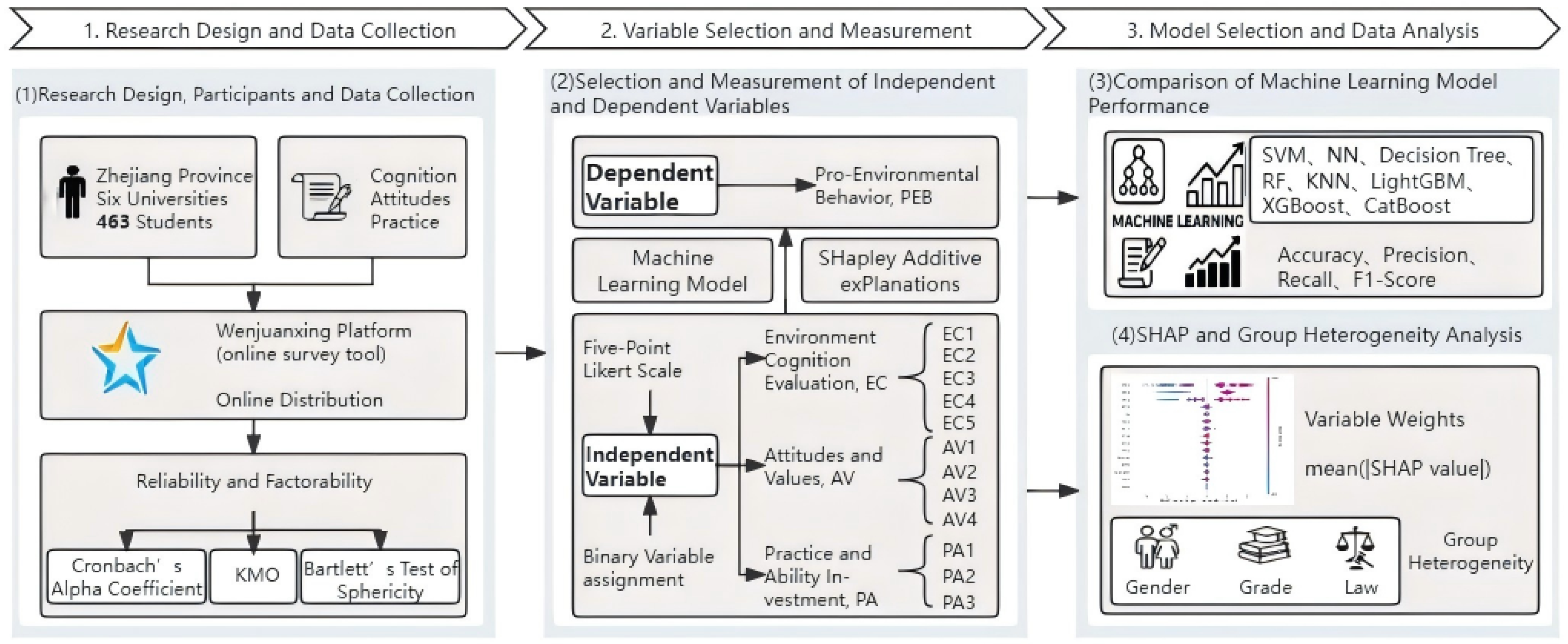

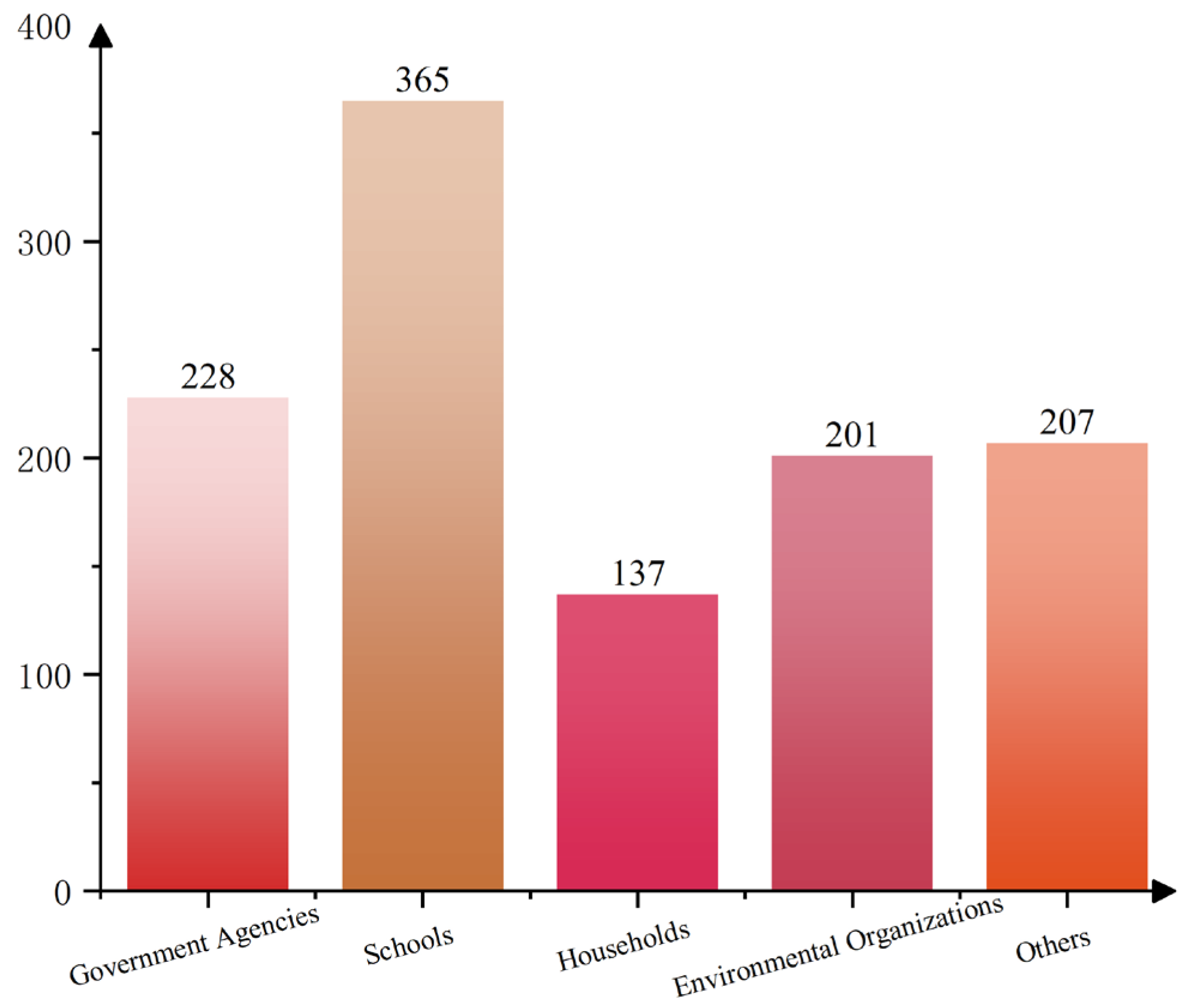
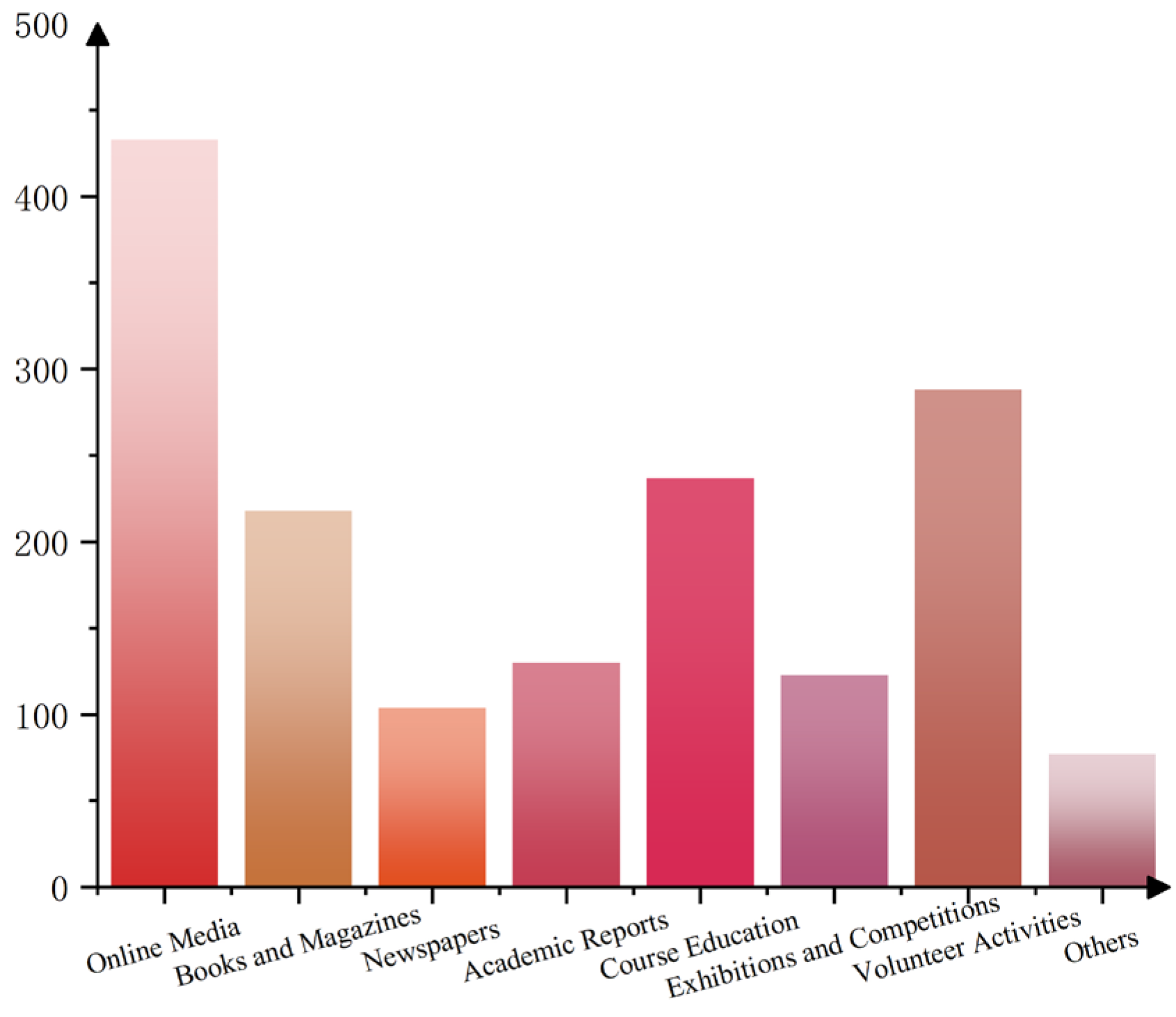
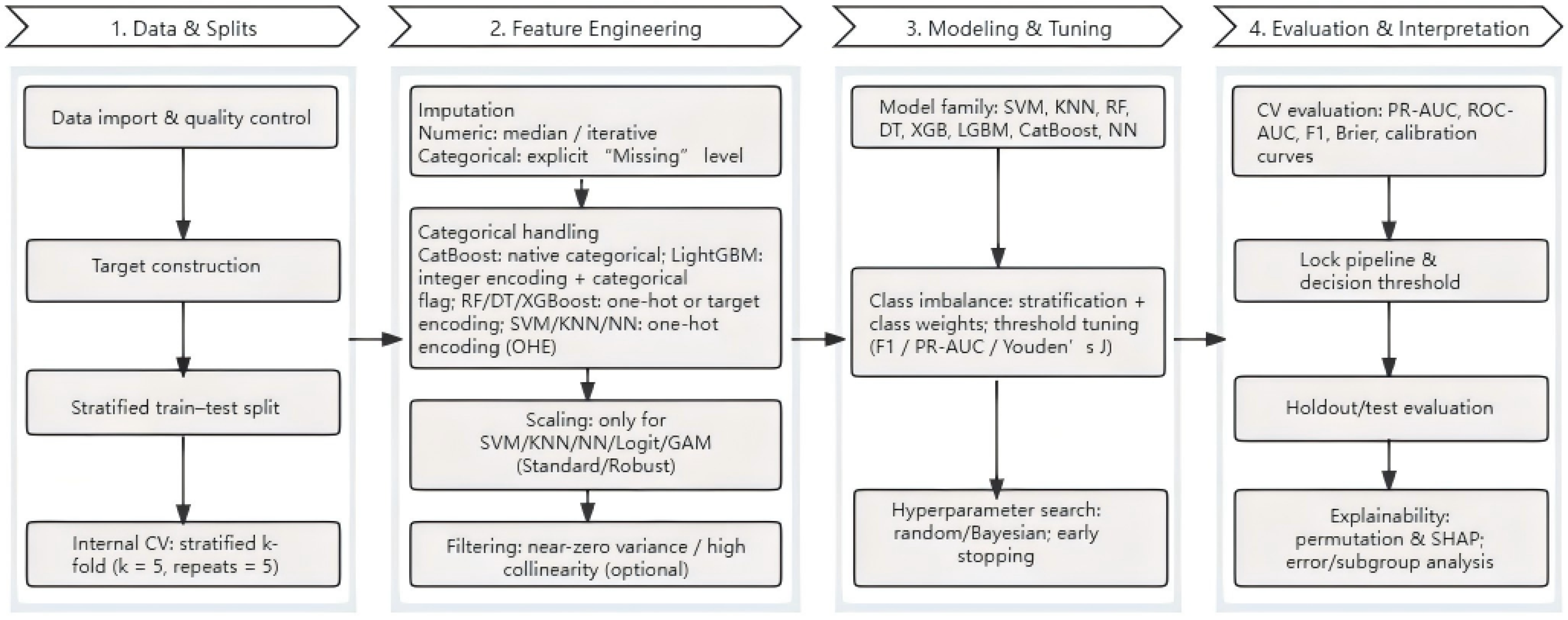
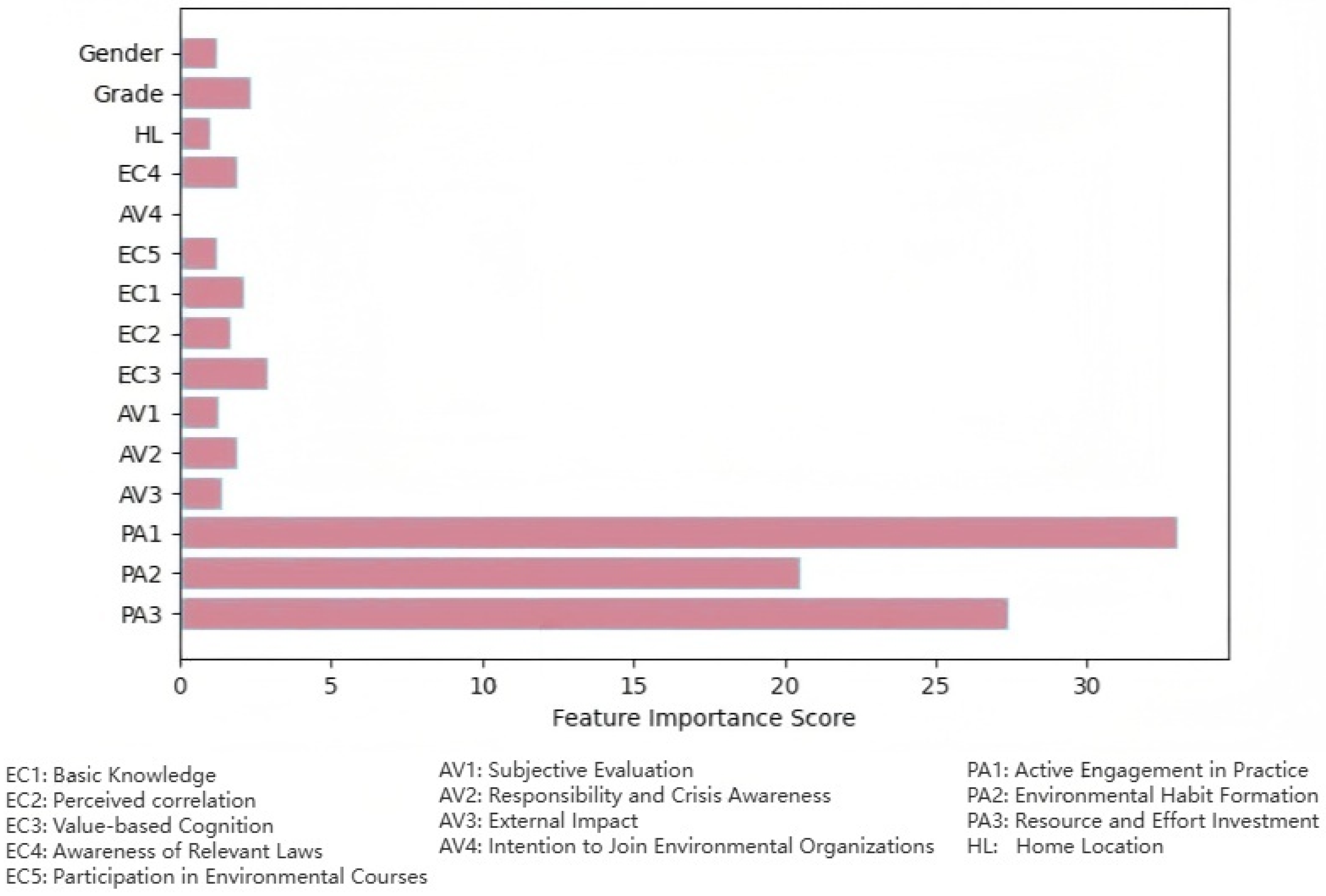
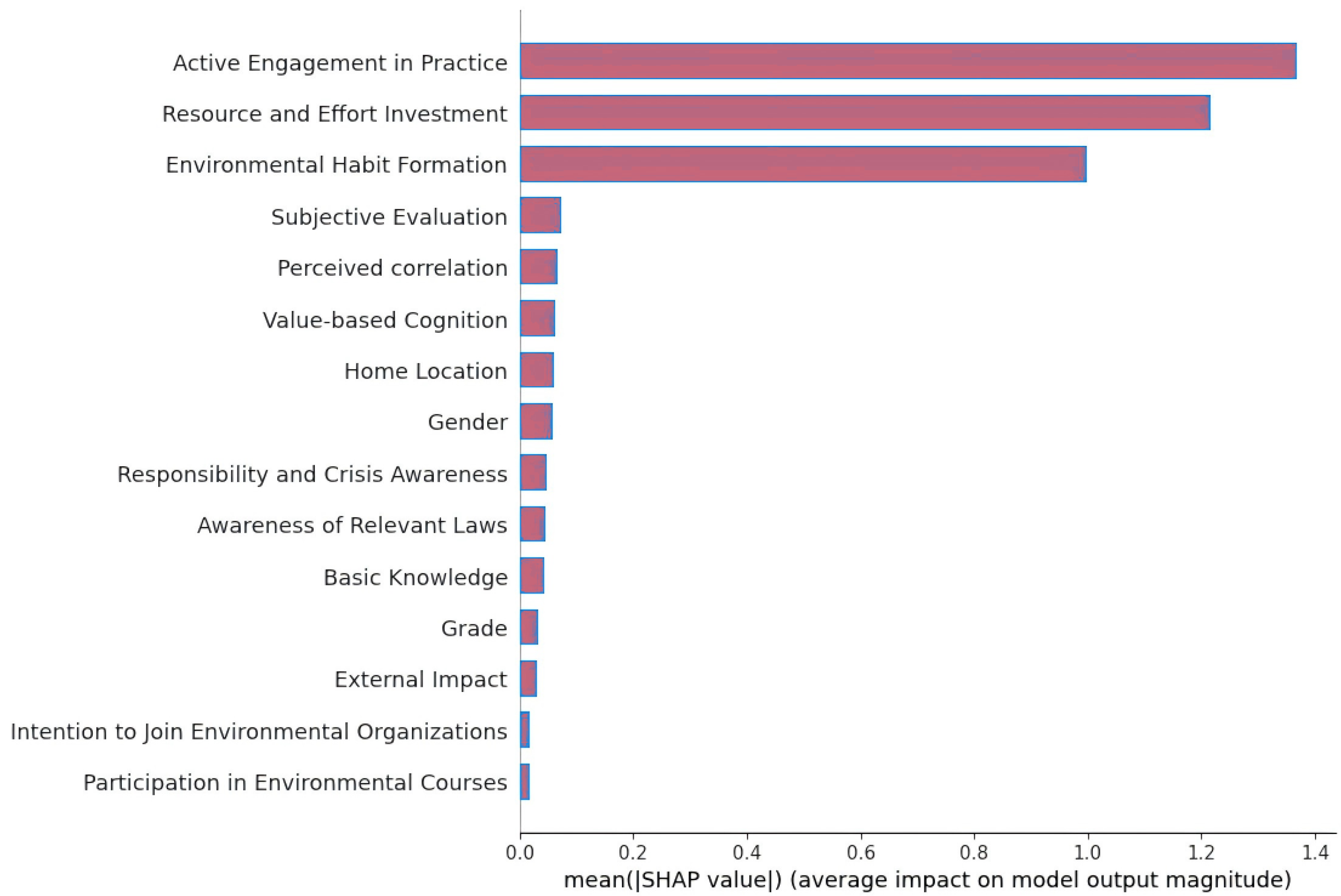
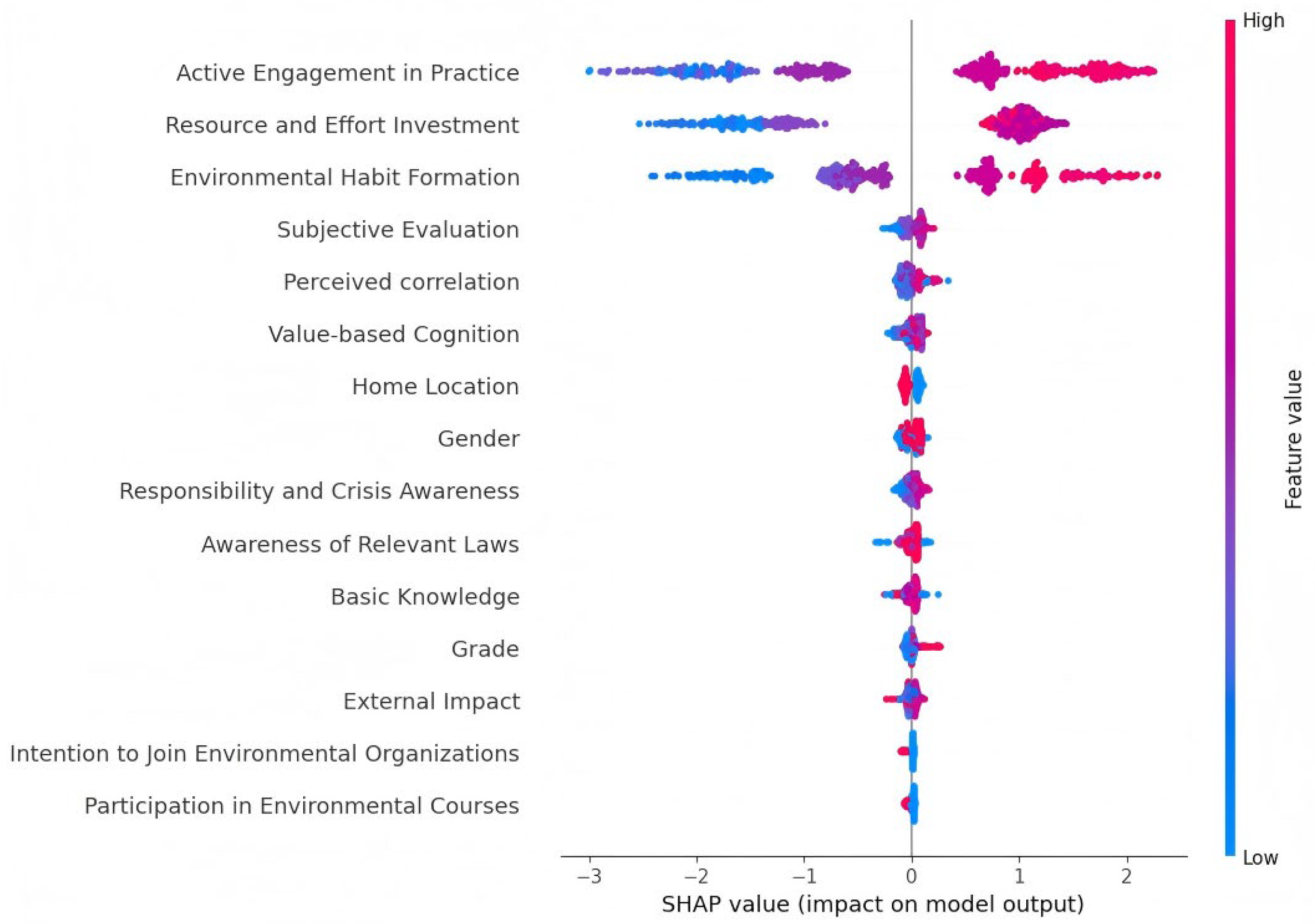
| Authors (Year) | Theory | Method | Sample | Key Findings |
|---|---|---|---|---|
| Frederiks, E.R., Stenner, K., & Hobman, E.V. (2015) [29] | Behavioral economics, psychology | Review of household energy consumption behaviors | The specific sample size is not mentioned, the study draws from various behavioral economics concepts related to household energy use. | Consumers’ behaviors often contradict their knowledge and intentions due to cognitive biases and motivational factors. Despite awareness, household energy conservation is difficult due to complex psychological barriers, not just financial incentives. |
| Knutti, R. (2019) [30] | None specifically mentioned, focusing on the gap in climate change | Commentary | Not applicable (review study) | Despite the rapid increase in climate change knowledge, global emissions continue to rise due to inadequate policy implementation. The gap between knowledge and action in climate change is exacerbated by political and economic inertia. |
| Casiás, B., & Faria, J. (2021) [31] | Intention-Behavior (I-B) Gap in Ethical Consumption | Mediation and moderation analysis using survey data | 364 respondents | Ethical behavior is mediated by plans and habits and moderated by commitment and sacrifice. The paper presents four consumer profiles based on their ethical priorities and suggests interventions to close the I-B gap by promoting ethical consumption as a social norm. |
| Meyer, K.B., & Simons, J. (2021) [32] | Food Choice Process Model | Ethnographic fieldwork | Six families in Germany | Despite positive attitudes towards sustainable food, actual behavior was influenced by household realities, conflicting personal and situational factors, and the complexity of decision-making processes. |
| Tawde, S., Kamath, R., & Husain, S.R.V. (2022) [33] | TPB, Self-efficacy Theory | Survey-based empirical research using moderated mediation analysis | 674 green consumers | When consumers are provided with cues to implement intentions and have higher self-efficacy, their intentions are more likely to translate into green behavior. |
| Essiz, O., Yurteri, S., Mandrik, C., & Senyuz, A. (2023) [34] | Cognitive psychology, Green value-action gap | Moderated moderation model using survey data | 328 respondents | Risk aversion and subjective knowledge are important moderators of the green value-action gap. The study also finds gender differences, with women showing greater consistency between their green values and actions compared to men. |
| Mooney, M.E. et al. (2022) [35] | None specified, focusing on educational interventions | Survey on climate knowledge and behavior change among university students | 71 undergraduate students from the University of Wisconsin–Madison | Climate education led to significant behavior changes in students regarding carbon footprints. A positive attitude from education could lead to more sustainable behaviors. |
| Wut, T.M., Lee, D., & Lee, S.W. (2023) [36] | Theory of planned behavior | Literature review and research agenda | Not applicable (review study) | In sustainable tourism, there is a significant gap between attitude and behavior due to practical issues like convenience, time constraints, and moral values conflicting with sustainability intentions. |
| Colombo, S.L., et al. (2023) [37] | Comprehensive-Action-Determination Model | Literature review on environmental knowledge–action gap | Not applicable (review study) | Environmental knowledge alone does not lead to action. Psychological and cognitive factors such as self-regulation, executive functions, and emotional responses are crucial in bridging the knowledge–action gap. |
| Räsaänen, A., et al. (2024) [28] | Knowledge co-production theory | Case study on transdisciplinary project in land use management | Various researchers, local stakeholders, and administrative actors involved in a project on sustainable land use in the Kiiminkijoki river catchment, northern Finland. | Knowledge–action gaps persist not just because of incomplete knowledge but due to the complex, iterative, and coevolutionary nature of knowledge production. Bridging this gap requires ongoing interaction and co-production between diverse stakeholders. |
| Sinha, R., & Annamdevula, S. (2024) [38] | Knowledge-Attitude-Behavior Theory | Parallel and serial mediation effects using PROCESS macro (Models 4 and 6) | 395 youth from three different cities in India, collected via purposive sampling | The study reveals that environmental concern, green perceived value, and green attitude act as both parallel and sequential mediators between environmental knowledge and green purchase intentions. The direct impact of environmental knowledge on green purchase intentions was found to be insignificant. The model emphasizes that environmental knowledge, when combined with environmental concern and green perceived value, plays a significant role in shaping attitudes that foster green purchase intentions. |
| Recio-Román, A., et al. (2024) [27] | Knowledge-Attitude-Behavior model, Attitude-Behavior-Context theory | Mediation path analysis using Eurobarometer data | 26,630 EU citizens | The gap between positive environmental attitudes and actual behavior is mediated by factors like ecolabel knowledge, trust, and environmental concern. Despite a favorable attitude, actual ecolabel adoption remains low. |
| Statistic | Environment Cognition Evaluation | Attitudes and Values | Practice and Ability Investment | Overall |
|---|---|---|---|---|
| Cronbach’s α | 0.313 | 0.753 | 0.744 | 0.781 |
| KMO | 0.630 | 0.835 | 0.864 | 0.864 |
| Bartlett | p < 0.001 | p < 0.001 | p < 0.001 | p < 0.001 |
| Number of Items | 9 | 15 | 10 | 34 |
| Variable Dimension | Variable Name | Variable Definition | Specific Features |
|---|---|---|---|
| Individual Background Characteristics | Gender | Male = 1, Female = 0 | |
| Grade | Freshman = 1, Sophomore = 2, Junior = 3, Senior = 4, Fifth-Year Undergraduate = 5, Postgraduate = 6. | ||
| Home Location (HL) | Whether the respondent is from city or countryside. | ||
| Environment Cognition Evaluation (EC) | Basic Knowledge (EC1) | The factual understanding of the current environmental situation, risks, and causality [65]. | Exposure to nature is beneficial for both physical and mental well-being. |
| In the past 12 months, has your place of residence been affected by climate-related issues? | |||
| Perceived correlation (EC2) | The strength of the perceived correlation between environmental issues and the utilization of oneself, society, and resources [66]. | Environmentally friendly consumption can only minimize environmental damage to a limited extent. (Reverse-coded item) | |
| Organic products are healthier and taste better. | |||
| Only by cherishing and utilizing resources efficiently and responsibly can we protect nature. | |||
| Value-based Cognition (EC3) | Rational judgment on the trade-off between nature conservation, economic development, and individual costs [65]. | You enjoy outdoor recreational activities such as hiking, birdwatching, swimming, and skiing. | |
| Protecting biodiversity requires sacrificing industrial agricultural production. | |||
| Infrastructure development is more important than environmental protection. | |||
| Industrial growth is more important than environmental protection. | |||
| Awareness of Relevant Laws (EC4) | Whether the respondent is familiar with laws related to environmental protection. | Are you familiar with the relevant laws regarding environmental protection? | |
| Participation in Environmental Courses (EC5) | Whether the respondent has previously taken courses related to environmental protection. | Have you participated in any courses related to the environment? | |
| Attitudes and Values (AV) | Subjective Evaluation (AV1) | Overall self-assessment of the adequacy/effectiveness of environmental education and personal changes [7]. | Environmental education has an impact on changing environmental attitudes and behaviors. |
| Schools should provide environmental education. | |||
| Environmental education in schools is currently well implemented. | |||
| The relationship between humans and nature should not be one of harmonious coexistence. (Reverse-coded item) | |||
| Just as humans have the right to exist, plants and animals, as living beings on Earth, also have their own rights. | |||
| Responsibility and Crisis Awareness (AV2) | Depth of understanding of the severity of environmental problems and their impacts on humanity. Views on the environmental impacts caused by human activities [66,67]. | The rapid depletion of natural resources will not threaten the future of humanity. (Reverse-coded item) | |
| Climate change and environmental pollution jeopardize living conditions, food security, and animal health. | |||
| The Earth’s ecosystems are highly fragile. | |||
| Humans are severely polluting the environment. | |||
| The Earth’s population growth has reached the limit of its carrying capacity. | |||
| External Impact (AV3) | Belief that environmentally unfriendly behaviors are mainly attributable to the lack of environmental education programs in schools. Views on the extent to which economic growth models, innovation, and technological progress can improve environmental outcomes, as well as on the self-regulating capacity of ecological systems [67]. | Environmental harm is primarily due to the lack of environmental education in schools. | |
| If the current economic growth model continues unchanged, humanity may face an environmental disaster. | |||
| Human innovation and technological progress can improve the environment. | |||
| Ecological balance has self-regulating and restorative capabilities to cope with the impacts of human-induced pollution. | |||
| Regardless of human special abilities, we are still subject to the laws of nature. | |||
| Intention to Join Environmental Organizations (AV4) | Whether the respondent is willing to join environmental organizations | Would you be willing to join an environmental protection organization and actively participate in environmental activities? | |
| Practice and Ability Investment (PA) | Active Engagement in Practice (PA1) | Participation in organizations and activities (related to environmental protection). Practical involvement in environmental protection activities [66]. | Are you willing to lower your standard of living to protect the environment? |
| Do you watch documentaries on environmental issues? | |||
| Do you discuss the importance of the environment with others? | |||
| Environmental Habit Formation (PA2) | Frequency of everyday pro-environmental behaviors. Pro-environmental consumption choices [66,68]. | Do you prefer choosing single-use bottled beverages? | |
| Before purchasing products, do you read labels to check if they are environmentally friendly? | |||
| Out of concern for environmental protection, do you continuously switch to eco-friendly products? | |||
| How often do you engage in environmental behaviors in your daily life, such as reusing items, saving water and electricity, and using eco-friendly transportation? | |||
| Resource and Effort Investment (PA3) | Investment of financial resources. Investment of time and effort [67]. | To reduce environmental issues, do you actively engage in self-learning? | |
| Do you actively participate in recycling activities organized by your school? | |||
| If you discover environmental crimes or invasive species, do you actively report them to the relevant government departments? | |||
| Pro-Environmental Behavior (PEB) | Energy Conservation | Energy-saving behaviors adopted by individuals in daily life, such as reducing energy consumption and using energy-efficient devices. | You avoid using air conditioners or heaters during peak hours and regularly check household appliances for energy wastage. |
| Resource Consumption Reduction | Conservation behaviors exhibited by individuals during resource consumption, such as avoiding waste and promoting reuse. | You try to avoid using single-use plastic products (such as disposable cups, utensils, etc.) and minimize food waste by purchasing according to need. | |
| Eco-friendly Consumption | Individuals prioritize the environmental characteristics and sustainability of products when purchasing and consuming goods. | When purchasing and consuming goods, you prioritize the environmental characteristics and sustainability of the products. |
| Model | Accuracy | Recall | Precision | F1-Score |
|---|---|---|---|---|
| SVM | 89.247% | 89.247% | 90.160% | 0.89 |
| NN | 89.247% | 89.247% | 89.224% | 0.89 |
| Decision Tree | 89.247% | 89.247% | 89.224% | 0.89 |
| RF | 91.398% | 91.398% | 91.399% | 0.91 |
| KNN | 78.495% | 78.495% | 78.597% | 0.78 |
| CatBoost | 93.548% | 93.548% | 93.548% | 0.94 |
| LightGBM | 90.323% | 90.323% | 90.297% | 0.90 |
| XGBoost | 89.247% | 89.247% | 89.224% | 0.89 |
| Parameter Name | Parameter Value |
|---|---|
| Training Set Proportion | 0.8 |
| Loss_Function | Auto |
| Iterations | 500 |
| Learning_rate | 0.1 |
| Depth | 6 |
| RSM | 1.0 |
| L2_leaf_reg | 3.0 |
| Feature Variables | Overall Sample | Male Group | Female Group | Upper-Year Group | Lower-Year Group | High Level of Legal Awareness Group | Low Level of Legal Awareness Group |
|---|---|---|---|---|---|---|---|
| PA2 | 22.22% | 27.13% | 22.35% | 15.31% | 26.50% | 20.95% | 17.09% |
| PA1 | 21.22% | 13.36% | 31.69% | 22.49% | 17.66% | 26.10% | 30.10% |
| PA3 | 20.20% | 28.52% | 18.78% | 32.16% | 23.69% | 23.03% | 25.89% |
| AV2 | 5.02% | 3.09% | 3.22% | 2.18% | 3.50% | 4.43% | 2.35% |
| EC3 | 3.49% | 5.64% | 1.98% | 4.94% | 5.37% | 3.98% | 2.69% |
Disclaimer/Publisher’s Note: The statements, opinions and data contained in all publications are solely those of the individual author(s) and contributor(s) and not of MDPI and/or the editor(s). MDPI and/or the editor(s) disclaim responsibility for any injury to people or property resulting from any ideas, methods, instructions or products referred to in the content. |
© 2025 by the authors. Licensee MDPI, Basel, Switzerland. This article is an open access article distributed under the terms and conditions of the Creative Commons Attribution (CC BY) license (https://creativecommons.org/licenses/by/4.0/).
Share and Cite
Yang, X.; Chen, S.; Liu, T.; Luo, J.; Tang, Y. Practice Primacy: Revisiting the Knowledge–Action Gap in Pro-Environmental Behavior with eXplainable AI. Sustainability 2025, 17, 9916. https://doi.org/10.3390/su17219916
Yang X, Chen S, Liu T, Luo J, Tang Y. Practice Primacy: Revisiting the Knowledge–Action Gap in Pro-Environmental Behavior with eXplainable AI. Sustainability. 2025; 17(21):9916. https://doi.org/10.3390/su17219916
Chicago/Turabian StyleYang, Xun, Shensheng Chen, Tingting Liu, Junjie Luo, and Yuzhen Tang. 2025. "Practice Primacy: Revisiting the Knowledge–Action Gap in Pro-Environmental Behavior with eXplainable AI" Sustainability 17, no. 21: 9916. https://doi.org/10.3390/su17219916
APA StyleYang, X., Chen, S., Liu, T., Luo, J., & Tang, Y. (2025). Practice Primacy: Revisiting the Knowledge–Action Gap in Pro-Environmental Behavior with eXplainable AI. Sustainability, 17(21), 9916. https://doi.org/10.3390/su17219916







